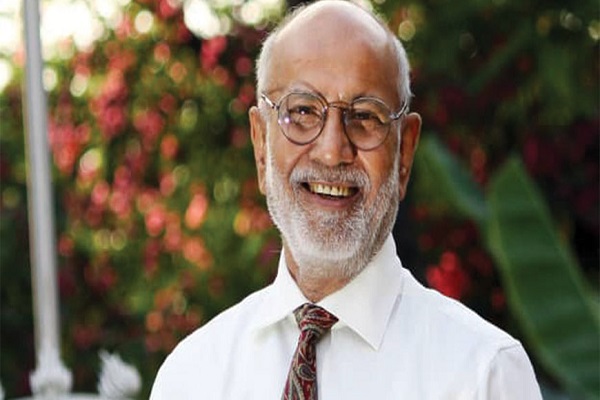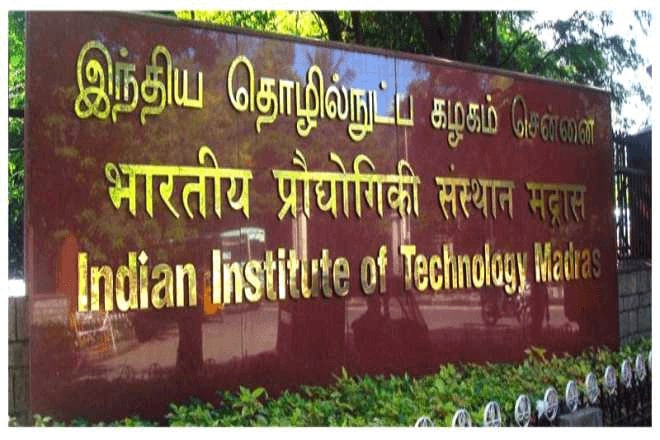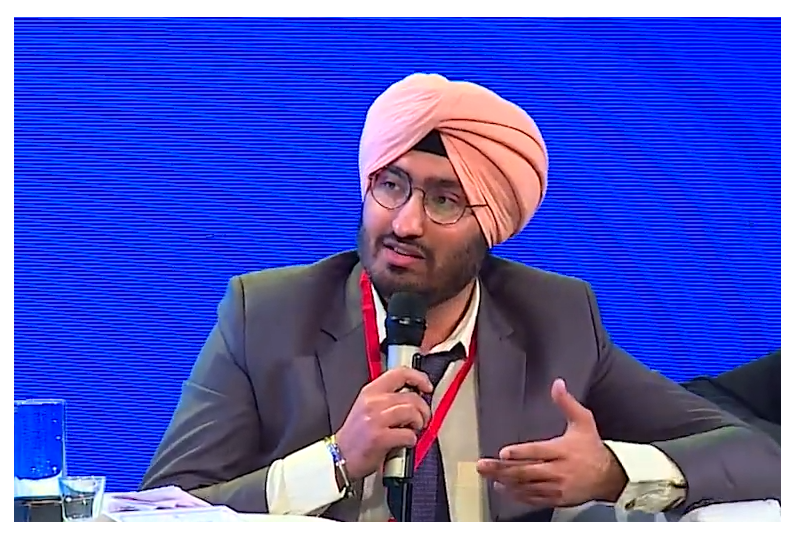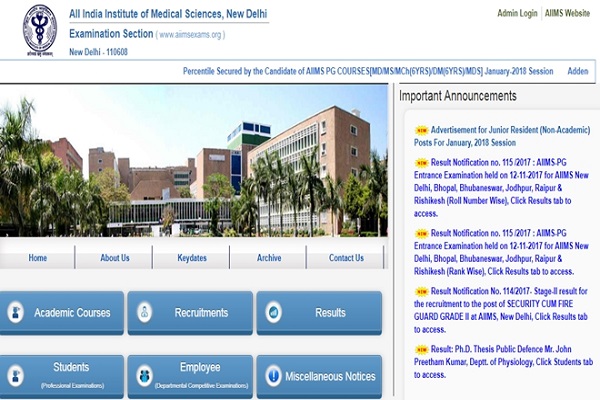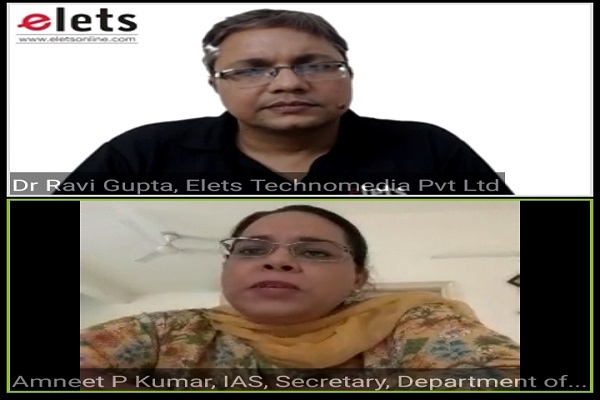During the first week of March 2020, in the National Capital, schools were closed as a precautionary measure to prevent the possibility of the spread of COVID-19 amongst school children. The total numbers of COVID- 19 cases in the country were 30 at that time. Since then spread of cases, awareness, precautions, and measures to stop the COVID-19 started accelerating. It’s been two months now, COVID-19 became a pandemic and has impacted the lives of people around the world. Transportation, traveling, ways of doing business and, new rules on public gatherings has changed the daily routines of millions across the globe.
We closed our school on 21 March, 2020 following the guidelines of the Government of Jharkhand. Fortunately, we were over with annual examinations, corrections works, results, and parent-teacher meetings (PTM) before the lockdown started. When we sensed that it is going to be long before we open our school for normal and formal teaching in the traditional classroom setup, we need to do something different. We at Sant Nandlal Smriti Vidya Mandir (SNSVM) strongly felt that children cannot be left at home without guidance and significant learning during this lockdown.
Discontinuity in education and learning can deeply impact students’ life. The very thought of this made us think to look for alternate ways and means, knowing that remote learning cannot create the same effect as in the school environment. But now it is becoming a necessity for the best interest of schools, teachers, students, and parents.
We started our new technological journey just after a week of school’s closure. The whole process we adopted for online classes can be shown as below:
In this article my focus will be on – Online Examination, because entire processes detailing of online classes is voluminous and beyond the scope of this article. After three weeks of teaching online, we decided to interact with parents using the same online video platform to know their views on the effectiveness of our efforts. We sent the request messages to parents for PTM and reminded them 2-3 times. Parents’ attendance (94-96%) and responses were overwhelming.
In the very PTM we apprised parents that we will seek your feedback through Google Form and similar technology will be used for conducting online examinations. They have happily accepted the idea and encouraged us that examination through on-line mode will make students more serious about their studies, online classes, and assignments. We were in great eustress. More than 1000+ students, classes IV-XII, 06 subjects up to the secondary section and 07 subjects in senior secondary section, was a voluminous task.
The challenges:
1. Preparation of the question papers MCQ type having single correct option, multiple correct options from lessons so far taught.
2. All teachers are not technological sound to create Question papers using Google Form.
3. Making Question papers in Standardized format.
4. Examination Time Table.
5. Invigilation duties to ensure fair examination.
6. Evaluation work.
7. Who will do what?
Firstly, we created a well-defined structure and a core team for this online examination, which is entirely different from the existing examination system we have in our school.
Core team: Members of the core team were technologically sound, having laptop, good internet connection, and young, energetic and willing to walk extra-miles. Team consisted of-
1. Principal
2. Observers-09
3. Technical Assistant-02
4. Coordinator-02
Flow of work:
Processes we followed:
- We created a new email only for online examination and used the drive for easy access and storage. Mail-id was shared with the paper setter to submit the question papers after HOD’s approval. Only the Principal and observers were authorized to check the mails and its contents.
- Conducted several meetings with teachers and core team to clarifications, progresses and feedbacks.
- Observers were given the training to prepare Question papers using Google form
- Observers received the QPs from the teachers in the mail created for the purpose and prepared the question papers using Google form.
- Technical assistants ensured that QPs are complete in all respect and released the link to observers for verifications and onward transmission to Class teachers on the given exam date just 05 minutes before.
- Parents were requested to act as an invigilator to ensure no unfair means by their wards.
- Coordinators numbers were shared with the parents to contact incase of any difficulties, clarification and suggestions during examinations.
- After all examinations, observers prepared the result sheets and technical assistant uploaded the result in the school webpage and SMS sent to the parents about the results
Messages to parents:
Instructions to students:
• Fill up your personal details carefully.
• All questions are compulsory.
• Try to submit the paper in 40-45 minutes.
• You are allowed to submit only once, make sure that you have correctly attempted all the questions before submission.
• Make sure you clicked on submit button to successfully complete the test.
• New students must contact their class teacher for the admission number.
• Form will be active for two hours only. For session-I 10.05AM to 12.05PM and for session-II 12.05PM to 2PM.
• For any difficulties while appearing the test please contact Mr. SR Dutta and Mr. Anup Kumar Patnaik.
Duties and responsibilities of Observer
1. Ensure that every class teacher is having a Question Paper link for paper-I by 09.45 AM for session-1.
2. Ensure every class teachers release the Question Paper link to their respective class group with necessary instructions by 10.05 AM
3. Students can take test from 10.05 AM. Students must submit the form to make it a valid test.
4. Inform Class teachers that Question Paper link will be active for 02 hours only.
5. Ensure through class teachers that all students are appearing in the test.
6. At 10.35 AM check the response sheet and apprise Class teachers about the attendance of the class. Inform the names who appeared the test to the class teachers.
7. At 11.35 AM check the response sheet once again and apprise Class teachers about the attendance of the class. Inform the names who appeared the test to the class teachers.
8. Ensure that every class teacher is having Question Paper link for paper-II by 11.45 AM for session-3.
9. Students can take tests from 12.05 PM. Students must submit the form to make it a valid test.
10. At 12.35 PM check the response sheet and apprise Class teachers about the attendance of the class. Inform the names who appeared the test to the class teachers.
11. At 1.35 PM check the response sheet once again and apprise Class teachers about the attendance of the class. Inform the names who appeared the test to the class teachers.
12. At 2 PM, prepare the report in Google Form with help of Class teachers in the given format and mail to Principal
Conclusions: “We don’t grow when things are easy and we are in a comfortable state, we grow when we face challenges”
We are so happy and satisfied with our efforts and outcomes that we have decided to continue online examinations for our Periodic/Half-yearly/Annual examination in our school.
Sanjay Kumar Mallick, an accomplished educationist with a career span of thirty years. He brims with creative exuberance and an industrious zeal. A Research Scholar, Master in Computer Applications, Master in Psychology, Post Graduate Diploma in Management (HR), and B. Ed. Mallick envisions education as the right blend of academic acumen and creative effervescence. He is a Psychologist, Motivator, CBSE City Coordinator (Training), CBSE Master Trainer, CBSE Resource Person, Author, Certified Career Counselor, and a Special Need Educator.













